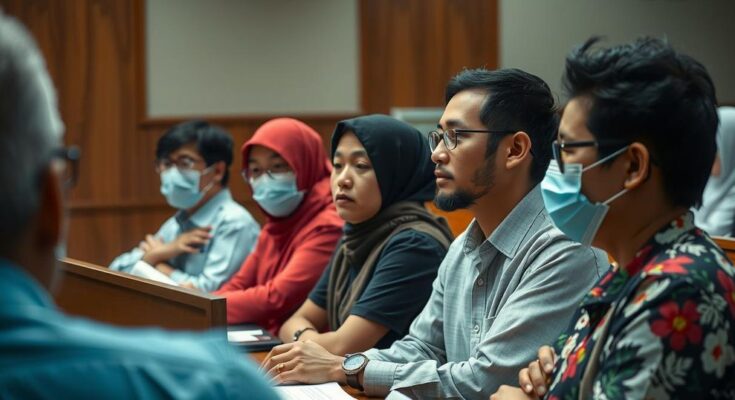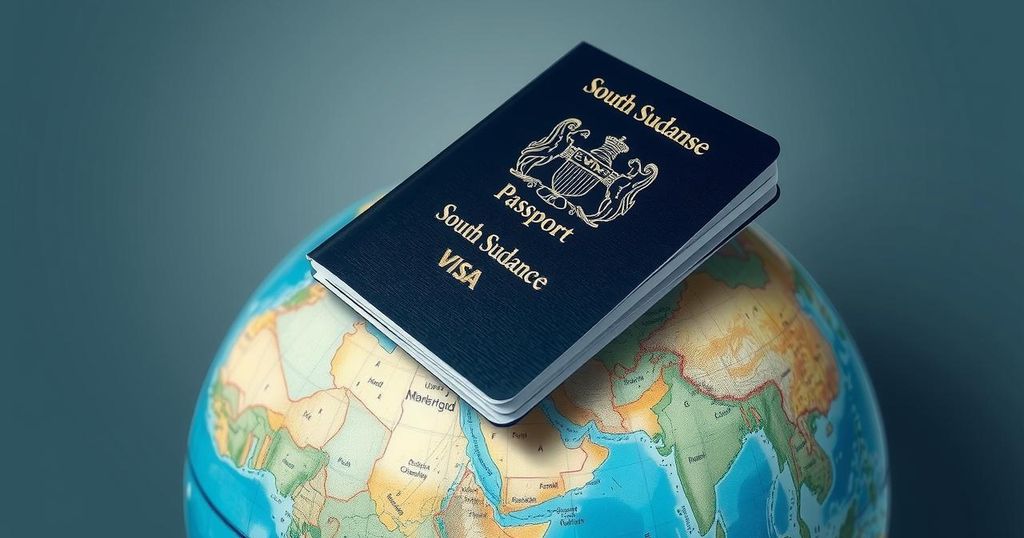Indonesia’s Constitutional Court is reviewing a petition to enable the prosecution of Myanmar’s junta members for human rights abuses under universal jurisdiction. This review seeks to modify existing laws, allowing the investigation and legal action against foreign nationals for serious crimes committed outside Indonesia. The case could position Indonesia as a pioneer in adopting universal jurisdiction principles in Southeast Asia.
Human rights activists in Indonesia are urging the Constitutional Court to review existing legislation to facilitate the prosecution of Myanmar’s military officials for alleged human rights abuses. The concept of universal jurisdiction would enable Indonesian law to apply to serious international crimes committed beyond its borders, allowing the nation to hold accountable those responsible for the atrocities following the military coup in Myanmar in 2021. A panel of nine judges is currently deliberating on whether to proceed with this significant legal amendment after requesting further amendments from the petitioners. Notable figures involved include former Attorney General Marzuki Darusman and Busyro Muqoddas, former head of the Judicial Commission.
The petition argues for the removal of the phrase limiting jurisdiction to Indonesian nationals, advocating for an inclusive legal framework that allows prosecution of foreign offenders. Proponents, such as lawyer Feri Amsari, emphasize the importance of universal jurisdiction in protecting victims of crimes against humanity, regardless of nationality. They contend that Indonesia has a responsibility under its Constitution to uphold global standards of justice and protect victims of mass atrocities. The necessity of such legal measures is underscored by the ongoing violence in Myanmar, where military forces have reportedly killed over 2,300 individuals since the coup in February 2021.
This initiative finds support from human rights organizations like Amnesty International, which has highlighted the growing trend of countries exercising universal jurisdiction. Similar past actions include Argentina’s investigation into alleged war crimes committed by the Myanmar military. The Indonesian petition also addresses the limitations of international law, specifically the inability to prosecute Myanmar’s military in the International Criminal Court due to its non-signatory status to the Rome Statute.
The growing consensus among ASEAN nations indicates a collective discontent regarding Myanmar’s response to regional peace agreements. Activists regard the potential granting of universal jurisdiction by Indonesia as a transformative step towards enhancing accountability in the region. This change would not only empower Indonesian courts but also serve as a precautionary measure for human rights violations both domestically and internationally, making Indonesia a pioneer in embracing universal jurisdiction principles in Southeast Asia.
The topic of universal jurisdiction involves the ability of a national court to prosecute foreign nationals for serious international crimes committed beyond its own borders. This legal principle allows for a broader interpretation of justice wherein nations can hold violators accountable regardless of their nationalities or the location of the crimes. Indonesia is currently at a crossroads in addressing human rights abuses stemming from regional conflicts, especially concerning Myanmar’s military junta following the 2021 coup. The significance of this legal review lies in Indonesia’s commitment to international human rights standards and its potential leadership role within ASEAN.
The ongoing deliberation by Indonesia’s Constitutional Court regarding the petition for universal jurisdiction represents a crucial development in the fight for human rights accountability, particularly concerning the actions taken by Myanmar’s military. If successful, the move could position Indonesia as a leader in human rights advocacy in Southeast Asia by facilitating the prosecution of gross human rights violations. Furthermore, this exemplary decision would send a strong message to potential offenders that there are no safe havens for human rights violators, reinforcing Indonesia’s commitment to global justice.
Original Source: www.benarnews.org




